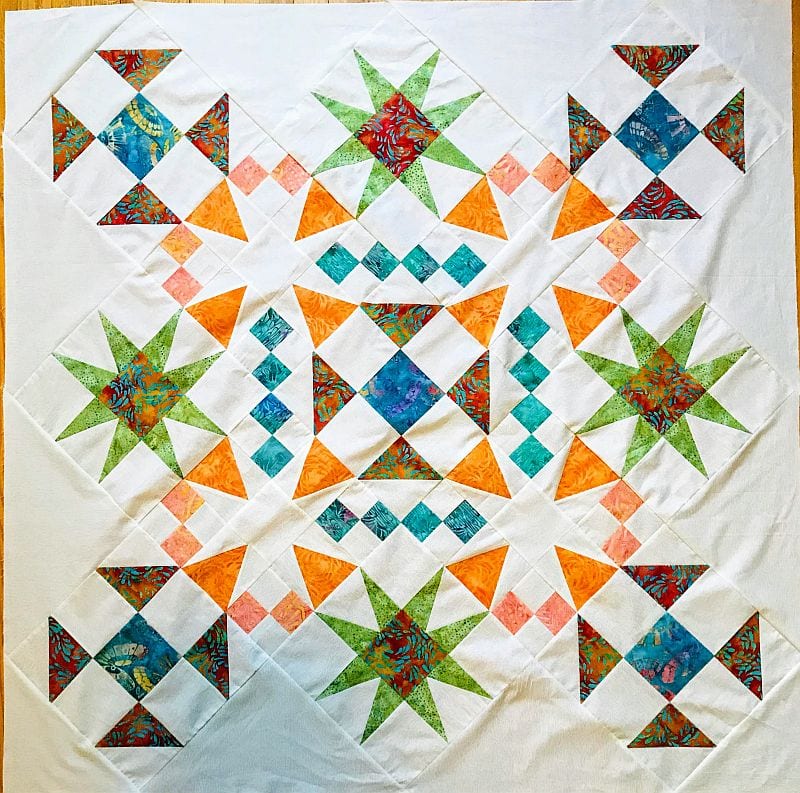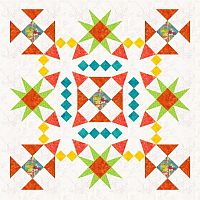The Summer Storm Mystery Quilt presents weekly free quilt and block tutorials. This clue teaches how to piece a quilt on the diagonal to set it on point. Setting a quilt top or block on point is a great way to make a quilt larger and add interest. It can be tricky to do, but if you take your time, press as you go and refer to this diagram you will have a stunning quilt in no time!
If you just got here, you are following a summer mystery quilt. It is being revealed in a series of weekly clues on the blog posted every Monday from the introduction before Memorial Day and finishing next Monday.
If you have never pieced a quilt on the diagonal before, read this section completely before starting to cut or sew.
Setting A Quilt or Block on Point
A quilt that is set on point is almost always more interesting than one done with a straight-set. But it can be tricky to piece. Although you are working in rows, each row has a triangle at both ends so you can piece the rows diagonally as shown below.
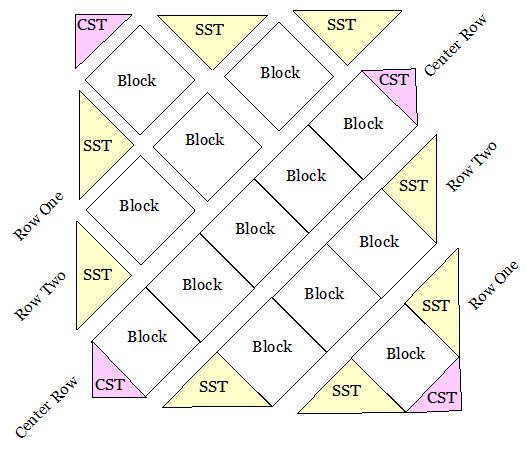
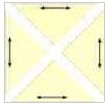
In order to cut the Side Setting Triangles (shown in yellow above) so that the edges are on the straight of grain, you must start with an oversize square and cut it on an X. You will need (8) Side Setting Triangles (SSTs) for this quilt.
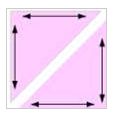
In order to cut the Corner Setting Triangles (shown in purple above) so that the edges are on the straight of grain, you start with a square that is cut on the diagonal. You will need (4) Corner Setting Triangles (CSTs) for this quilt.
Assemble:
- (2) 18-1/4″ x 18-1/4″ squares (from July 15)
- (2) 9-1/2″ x 9-1/2″ squares (from July 15)

To cut the Side Setting Triangles (shown in yellow above) so that the edges are on the straight of grain, you must start with an oversize square and cut it on an X. Cut the (2) 18-1/4″ background squares as shown to the left. You will create (8) Side Setting Triangles (SSTs.) They are slightly oversized so when you sew them to the end of the row, you may need to straighten the outer edge.
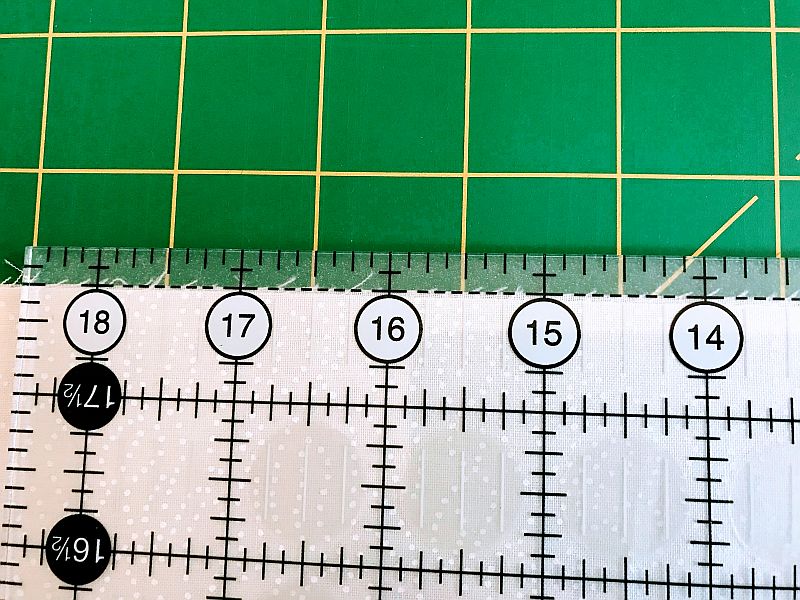

To cut the Corner Setting Triangles (shown in purple above) so that the edges are on the straight of grain, you start with a
9-1/2″ square that is cut on the diagonal. Cut (2) of these squares to create the (4) Corner Setting Triangles (CSTs.) Again, this is cut slightly oversize so when you sew them to the end of the row, you may need to straighten both outer edges.
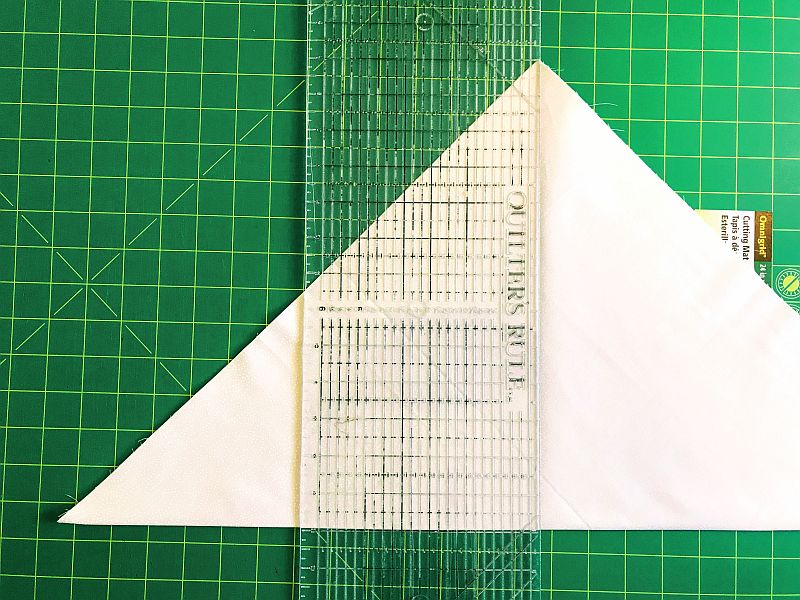
Assemble:
- (5) Churn Dash Blocks (from July 29)
- (4) Day Star Blocks (from August 5)
- (4) Night Star Blocks (from August 12)
- (8) Side Setting Triangles (SST) (from July 15)
- (4) Corner Setting Triangles (CST) (from July 15)
Sew (2) rows like the one below. These are Row One and Row Five. Be sure to match the angle of the Side Setting Triangles. Remember that the SST’s are slightly too big, so if there is any excess, piece the row so the excess is on the outside. Press to the block. Don’t skip the pressing directions, they WILL make a difference.
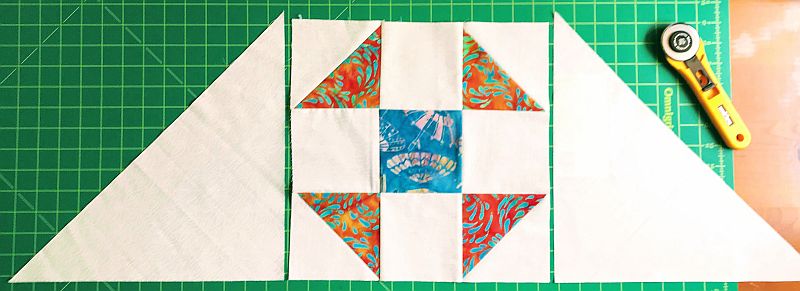
Sew (2) rows like the one below. These are Row Two and Row Four. Sew the blocks before adding the Side Setting Triangles so you can rotate them to avoid overlapping seams. Be sure to place the peach side on the top of the row and match the angle of the SSTs. (Ask me how I know….) Remember that the SST’s are slightly too big, so if there is any excess, piece the row so the excess is on the outside. Press toward the Day Star Block.

Sew (1) row like the one below. Sew the blocks before adding the Corner Setting Triangles so you can rotate them to avoid overlapping seams. This is Row Three, the Center Row, so it will have a CST at both ends. Remember that the CST’s are slightly too big, so if there is any excess, piece the row so the excess is on the outside. Press all block and edge seams toward the churn dash block.

Sew the rows in order. Add a CST triangle to the Row One corners. Press to the CST.
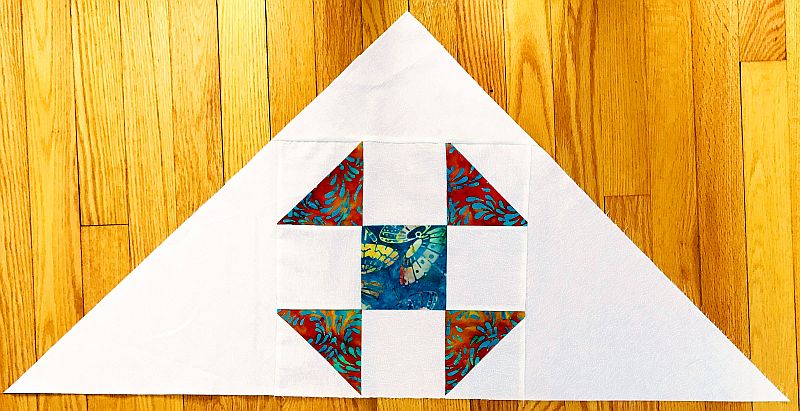
Now it’s time to sew it all together. Take a deep breath and find your good pins. I am going to pause for a moment and tell you how much I like Clover 232 pins. They are strong, straight and sharp but they don’t cost so much that you will stress over losing a few. These are the best pins (IMHO) for putting together rows because they go through all the layers of fabric without distorting it.
Lay the rows out and double-check. Can you see the center circle? That’s the center of the storm. The lighter squares represent the rain just starting to lighten. The churn dash blocks are the puddles.
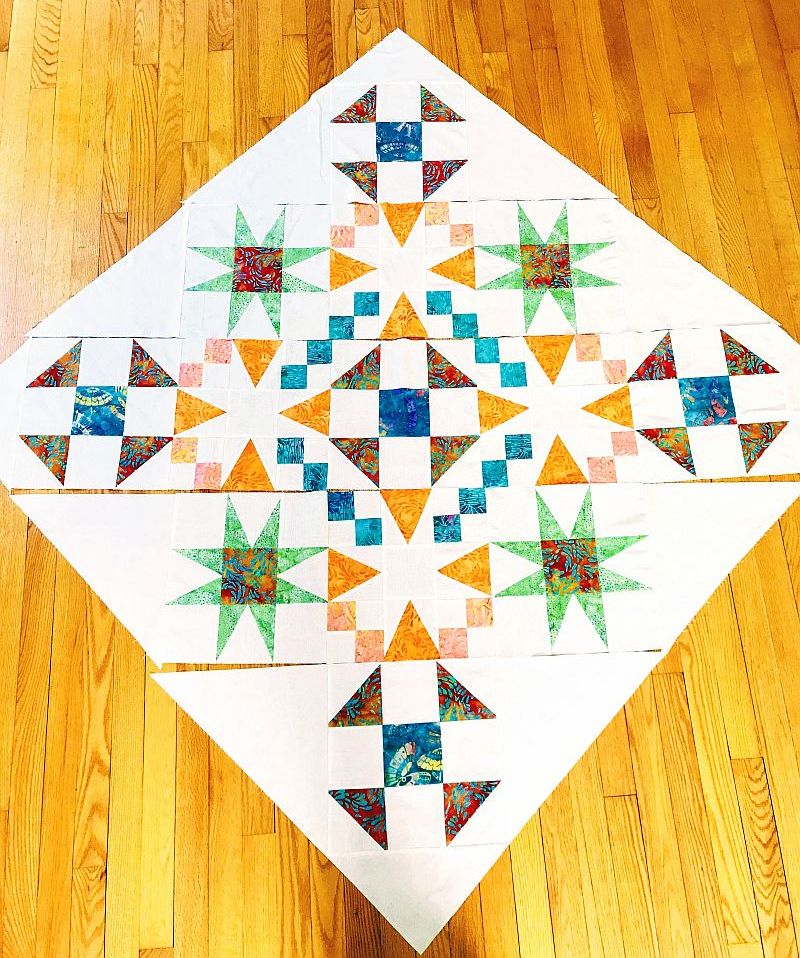
Pin the rows in order, taking care to match up the block seams. Because of the way you pressed them, they should face in opposite directions. This will help you ease the seam of the row (if necessary) so that all the block seams line up and the quilt lies flat. Aim for that X!
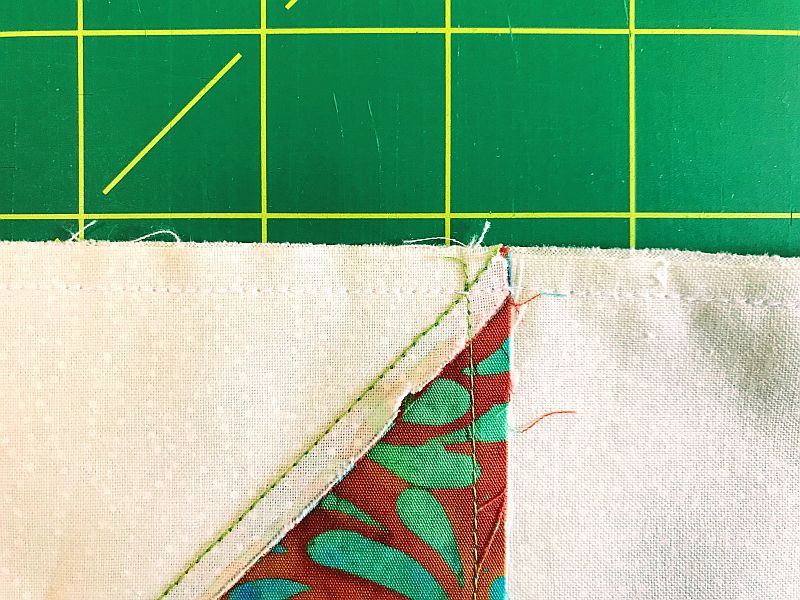
Not all the smaller blocks inside the big blocks will have opposite seams. Do your best to keep them from overlapping, but don’t stress over this. You will have one or two – just don’t twist them.
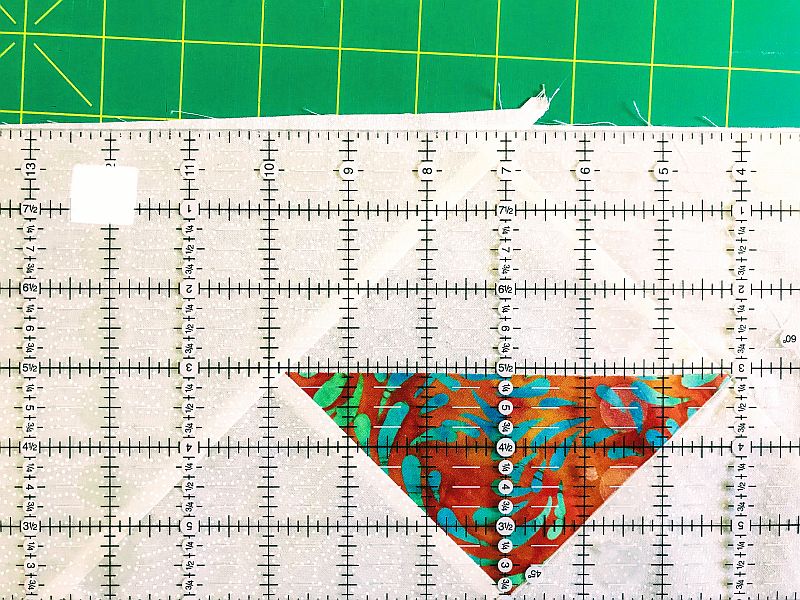
Press from the back so you can fix any twisted seams. Straighten the edges by laying a long ruler along the edge so that the 1/4″ line on the ruler is on the points and cutting off the excess. This is a CGR8 but any long ruler will do.
Double-check before you cut—did you leave a 1/4″ seam allowance? When you are done, give your top one final pressing. Take a deep breath and give yourself a little praise. There is only one more clue to go, and that is the shore of the pond, the streams, the brambles, and the forest.
